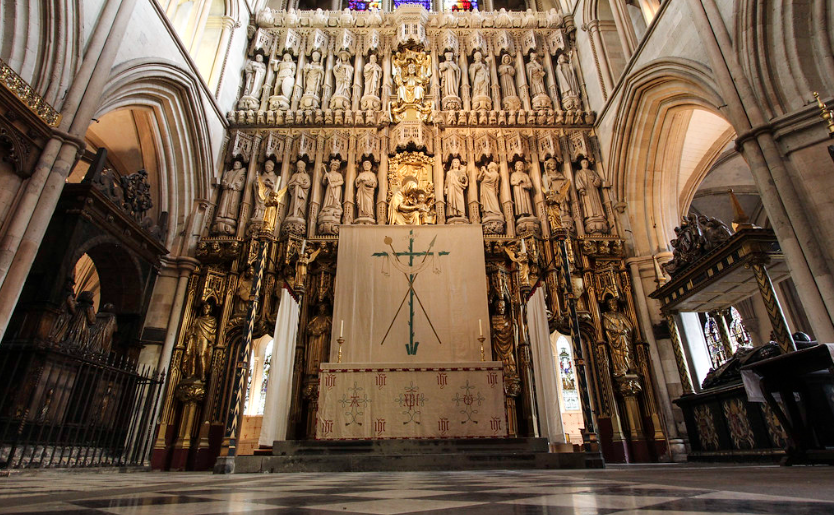When my wife and I converted to Anglicanism back in 2015, I didn’t think much about the more austere aspects of the denomination. Like others whose walk leads them Frost-like down the less-travelled road of Canterbury, we — former members of both the Baptist and Presbyterian churches — were compelled by liturgical concerns, that ecclesiastical category including vestments and processions, crucifers and candles.
Reflecting the grandeur of our Creator, these features have their place in worship and, in my opinion, ought to have a very high place. And perhaps it’s designed this way: for the billboard, bright and extravagant as it is, pales in comparison to the richer, more subtle experience of the movie or play. Thus it was with my initial draw to Anglicanism: I had no idea of the complexity of the decision I had made.
Then came Lent.
It was a new and unexpected territory—and not a very obliging one at that.
For, to me, Lent was a little too, oh, I don’t know … real.
Suffering, self-reflection? I’d had enough of that in the Baptist and Presbyterian churches, especially the latter. After all, didn’t the five-point Calvinists write the book on sin and somberness? Wasn’t that what Total Depravity and Irresistible Grace were all about?
As far as I was concerned, we’d been observing Lent all year long, and I couldn’t avoid the silent protestation which summed up my feelings quite perfectly:
“Give me Liturgy or Give me Death!”
It didn’t help that right about the time the Lenten season was starting that year, I began a real-life spiritual struggle. I will spare you the details, but it had to do with personal sin in my life. I dismissed the timing as coincidental. Would God really use the Church calendar to time my struggles? I simply couldn’t believe that He would.
Then came the following year’s Lenten season, and with it, another struggle. Suddenly I was forced to take notice. The message seemed to be that if I was going to get the good, I must first struggle through the bad.
Upon reflection, I realized that I was wanting all the poetry of high church liturgy, without the prosaic struggles of Lent. A heterodox theological position, if there ever was one.
But that seems to be where lots of folks are these days, both Christian and non. They want the good without the obligatory bad — they desire the love of God without the suffering of his Son.
G. K. Chesterton wrote about the goodness of modern society in his book “Orthodoxy,” noting how its virtues have gone so wild as to be untethered from the Church, their very origin. But there is no real goodness without a source, just as there’s no virtue without orthodoxy … just as there’s no Easter without Lent.
Since coming to this understanding, my spiritual walk is much more fulfilling. It seems bratty and immature now to think that I could have all that — all the glories of Christ’s resurrection — without suffering any of the pains of his crucifixion.
Therefore, from that day forward, “Give me Liturgy or Give me Death!” has been more than just a protestation, it’s been a theological fact, in an even truer sense than I previously realized. For without death, there simply is no liturgy.
This year’s Lenten season is starting out like most others. It’s a terrible time in my profession, the lumber business, meaning we are unable to sell certain products, and the ones we do sell don’t produce much money. My parents are getting older, and we’re dealing with estate planning, and the terrible issue of how to handle assets in a fallen world. More personally, a request for which I’ve prayed several years now, has once again gone unanswered.
But I have the consolation of knowing, in a way that I did not before I began observing Lent, that this, too, shall pass—that Easter is coming. And, as Robert Frost said, that has made all the difference.
Along with his father, Allen Keller runs a lumber business in Stevenson, Alabama. He has a PhD in Creative Writing from Florida State University and an MBA from University of Virginia. He can be reached for comment at allen@kellerlumber.net.










